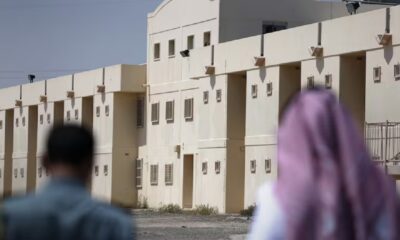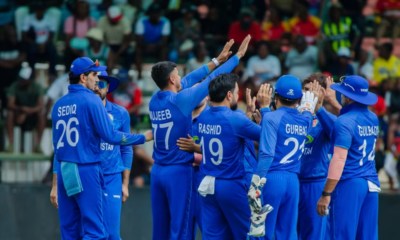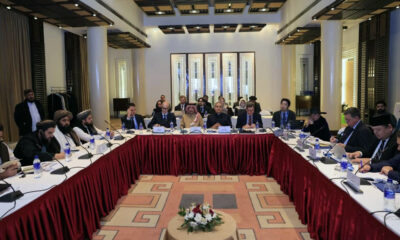Latest News
Wave of threats and killings has sent ‘chilling message’ to Afghan media

Taliban forces are deliberately targeting journalists and other media workers, including women, in Afghanistan, Human Rights Watch said this week.
“A wave of threats and killings has sent a chilling message to the Afghan media at a precarious moment as Afghans on all sides get set to negotiate free speech protections in a future Afghanistan,” said Patricia Gossman, associate Asia director.
“By silencing critics through threats and violence, the Taliban have undermined hopes for preserving an open society in Afghanistan,” she said.
In a statement issued by the rights watchdog, HRW said threats and attacks against journalists across the country have increased sharply since talks began between the Afghan government and the Taliban, heightening concerns about preserving freedom of expression and the media in any peace settlement.
Human Rights Watch has found that Taliban commanders and fighters have engaged in a pattern of threats, intimidation, and violence against members of the media in areas where the Taliban have significant influence, as well as in Kabul.
Those making the threats often have an intimate knowledge of a journalist’s work, family, and movements and use this information to either compel them to self-censor, leave their work altogether, or face violent consequences, the statement read.
HRW said provincial and district-level Taliban commanders and fighters also make oral and written threats against journalists beyond the areas they control. Journalists say that the widespread nature of the threats has meant that no media workers feel safe.
Human Rights Watch interviewed 46 members of the Afghan media between November 2020 and March 2021, seeking information on the conditions under which they work, including threats of physical harm.
Those interviewed included 42 journalists in Badghis, Ghazni, Ghor, Helmand, Kabul, Kandahar, Khost, Wardak, and Zabul provinces and four who had left Afghanistan due to threats.
In a number of cases that Human Rights Watch documented, Taliban forces detained journalists for a few hours or overnight.
In several cases they or their colleagues were able to contact senior Taliban officials to intercede with provincial and district-level commanders to secure their release, indicating that local commanders are able to take decisions to target journalists on their own without approval from senior Taliban military or political officials, HRW stated.
Taliban officials at their political office in Doha, Qatar, have denied that their forces threaten the media and say that they require only that journalists respect Islamic values.
But Taliban commanders throughout Afghanistan have threatened journalists specifically for their reporting. The commanders have considerable autonomy to carry out punishments, including targeted killings, read the statement.
Women journalists, especially those appearing on television and radio, face particular threats.
The recent wave of violent attacks has driven several prominent women journalists to give up their profession or leave Afghanistan altogether.
Human Rights Watch found that female reporters may be targeted not only for issues they cover but also for challenging perceived social norms prohibiting women from being in a public role and working outside the home.
Journalists outside the country’s main cities are especially vulnerable to attacks because they are more exposed and lack even the minimal protection that a larger Afghan media, government, and international presence provides.
However, as the fighting has increasingly encroached on major cities, these have offered decreasing protection to journalists seeking safety from the violence in their home districts, the statement read.
A journalist covering the fighting in Helmand province told Human Rights Watch that one of his sources told him the Taliban were looking for him and he should lie low.
“The majority of Afghan journalists feel intimidated and threatened,” he said. “All the journalists are scared because everyone feels like they could be next.”
Human Rights Watch called on the Taliban leadership to immediately cease intimidation, threats, and attacks against journalists and other media workers.
They should urgently provide clear, public directives to all Taliban members to end all forms of violence against journalists and other media workers, and intimidation, harassment, and punishment of Afghans who have criticized Taliban policies, the statement read.
The Taliban leadership should also explicitly reject violence against women in the media, the rights watchdog stated.
In addition, HRW called on the United Nations and governments supporting the Intra-Afghan Negotiations to publicly press the Taliban leadership to adopt these recommendations, and provide increased support, including protection, to independent media organizations and journalists in Afghanistan, especially those facing threats.
“It’s not enough for Taliban officials in Doha to issue blanket denials that they’re targeting journalists when Taliban forces on the ground continue to intimidate, harass, and attack reporters for doing their jobs,” Gossman said.
“Countries supporting the peace process should press for firm commitments from all parties to protect journalists, including women, and uphold the right to free expression in Afghanistan.”
Latest News
Pakistan, Kazakhstan stress importance of stability in Afghanistan, support regional projects
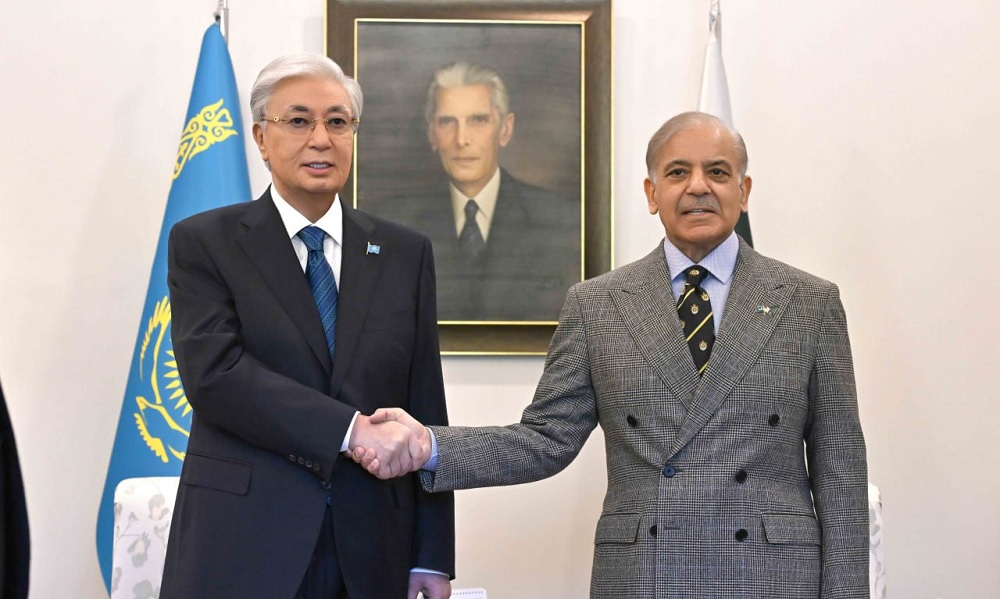
Pakistan and Kazakhstan have highlighted the importance of peace and stability in Afghanistan, calling it a key requirement for advancing regional cooperation. The remarks came in a joint statement issued after Kazakh President Kassym-Jomart Tokayev’s visit to Islamabad.
The two leaders stressed that Afghan territory must not be used for activities that threaten the security of other countries. They also agreed that integrating Afghanistan into regional economic and connectivity initiatives would benefit both the Afghan people and the wider region.
Islamabad and Astana reaffirmed their commitment to expanding international multimodal transport corridors linking the two countries, including the Kazakhstan–Turkmenistan–Afghanistan–Pakistan, Kazakhstan–Uzbekistan–Afghanistan–Pakistan, and Kazakhstan–Kyrgyzstan–China–Pakistan routes.
Prime Minister Shehbaz Sharif welcomed President Tokayev’s proposal to link Central and South Asia through the Trans-Afghan railway corridor. Both sides instructed their relevant authorities to study the development of the Kazakhstan–Turkmenistan–Afghanistan–Pakistan railway line.
Latest News
US Justice Department to seek death penalty for Afghan suspect in National Guard shooting
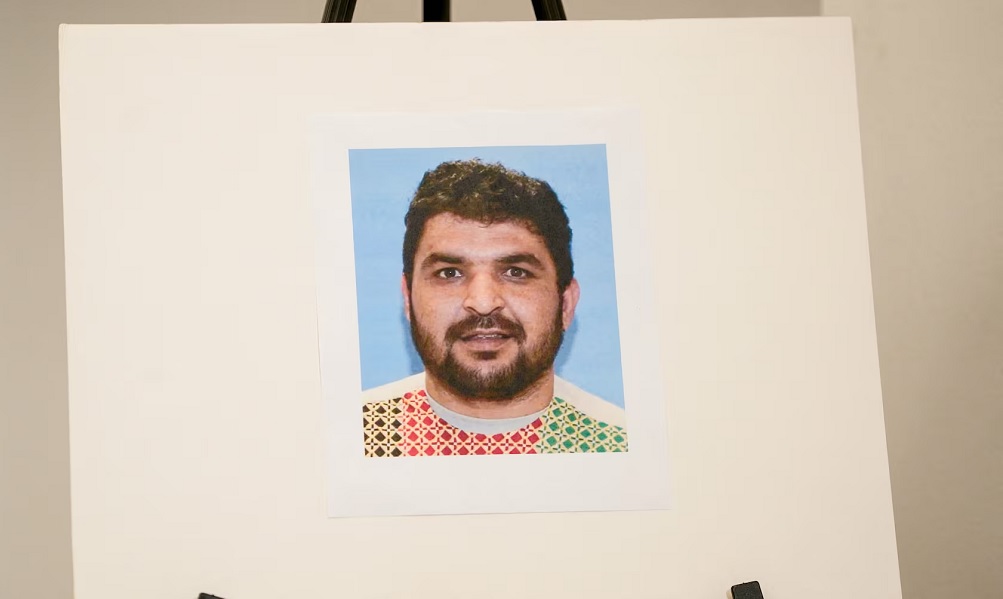
The U.S. Justice Department has announced that it intends to seek the death penalty for Rahmanullah Lakanwal, the man accused of shooting two members of the National Guard near the White House in November, an incident that left one guard member dead and another injured.
Lakanwal, who previously worked with U.S. agencies in Afghanistan before relocating to the United States in 2021, appeared in a federal court this week and pleaded not guilty to nine charges, including first-degree murder.
Prosecutors told the judge they are pursuing “death-eligible charges.”
According to U.S. court documents, Lakanwal is accused of traveling from Washington state to the capital, where he allegedly attacked the two National Guard officers.
A third guard member detained him shortly after the incident. One of the victims, Sarah Beckstrom, died a day later, while the second, Andrew Wolfe, remains under medical care.
Court filings claim Lakanwal had obtained a pistol shortly before the attack and had also purchased ammunition. Prosecutors say he conducted online searches related to Washington, D.C., before the shooting.
Lakanwal is scheduled to appear for his next court hearing in early May.
Latest News
Terrorist threat in Afghanistan must be taken seriously, China tells UNSC

China has warned the United Nations Security Council (UNSC) that the terrorist threat in Afghanistan remains severe and requires urgent international attention, citing the continued presence and activities of several extremist groups on Afghan soil.
Speaking at the Council’s meeting on threats to international peace and security caused by terrorist acts, Chinese envoy Sun Lei said organizations such as ISIL, al-Qaeda and the East Turkestan Islamic Movement (ETIM) are still operating in Afghanistan and pose “persistent threats” to the country and the wider region.
Sun referred to last month’s deadly explosion at a Chinese restaurant in Afghanistan, which killed seven people and was claimed by ISIL-K, as a reminder of the group’s ongoing operational capability. He urged the Afghan authorities to “attach great importance” to counterterrorism efforts and to take concrete measures to prevent the country from once again becoming a hub for extremist networks.
He added that China supports deeper regional cooperation — particularly among Central Asian states and through the Shanghai Cooperation Organization (SCO) — to jointly confront cross-border terrorist threats, while also helping Afghanistan stabilize its economy.
Pakistan’s envoy Asim Iftikhar Ahmad also raised concerns, saying the Afghan authorities continue to provide a “permissive environment” for groups such as TTP, al-Qaeda, ISIL-K and ETIM/TIP. He warned that these organizations endanger not only Pakistan but the entire region, and highlighted the risk of advanced weapons left behind in Afghanistan falling into militant hands.
U.S. representative Mike Waltz broadened the discussion, noting the expansion of al-Qaeda affiliates and ISIL-linked groups in West Africa and the Sahel, as well as the resilience of ISIL cells in Syria and Iraq. He said ISIL-K (Daesh) remains a persistent threat in Afghanistan, underscoring the need for sustained and coordinated global counterterrorism efforts.
Regional countries have repeatedly raised concern about terrorist threats in Afghanistan. The Islamic Emirate, however, has dismissed the concerns, reiterating that it will not allow Afghan soil to be used against any other country.
-

 Sport4 days ago
Sport4 days agoAFC Futsal Asian Cup: Afghanistan to face Iran in crucial Group D clash
-

 Sport5 days ago
Sport5 days agoT20 World Cup 2026: Afghanistan national cricket team arrives in India
-

 Sport3 days ago
Sport3 days agoAFC Futsal Asian Cup 2026: Final eight confirmed
-
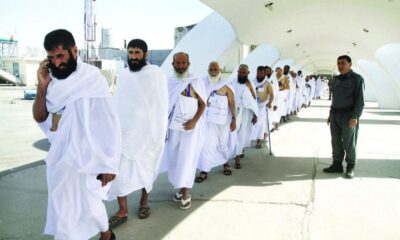
 Latest News5 days ago
Latest News5 days agoAfghanistan granted 30,000 Hajj quota for 2026
-

 Sport3 days ago
Sport3 days agoAfghanistan in new kit for T20 World Cup warm-up against Scotland
-

 Sport4 days ago
Sport4 days agoIran see off spirited Afghanistan to finish top of Group D
-

 Sport2 days ago
Sport2 days agoJapan trumps Afghanistan 6-0 in AFC Futsal Asian Cup quarter-final
-
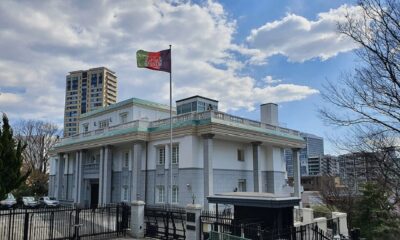
 Latest News5 days ago
Latest News5 days agoAfghan Embassy in Japan suspends operations






